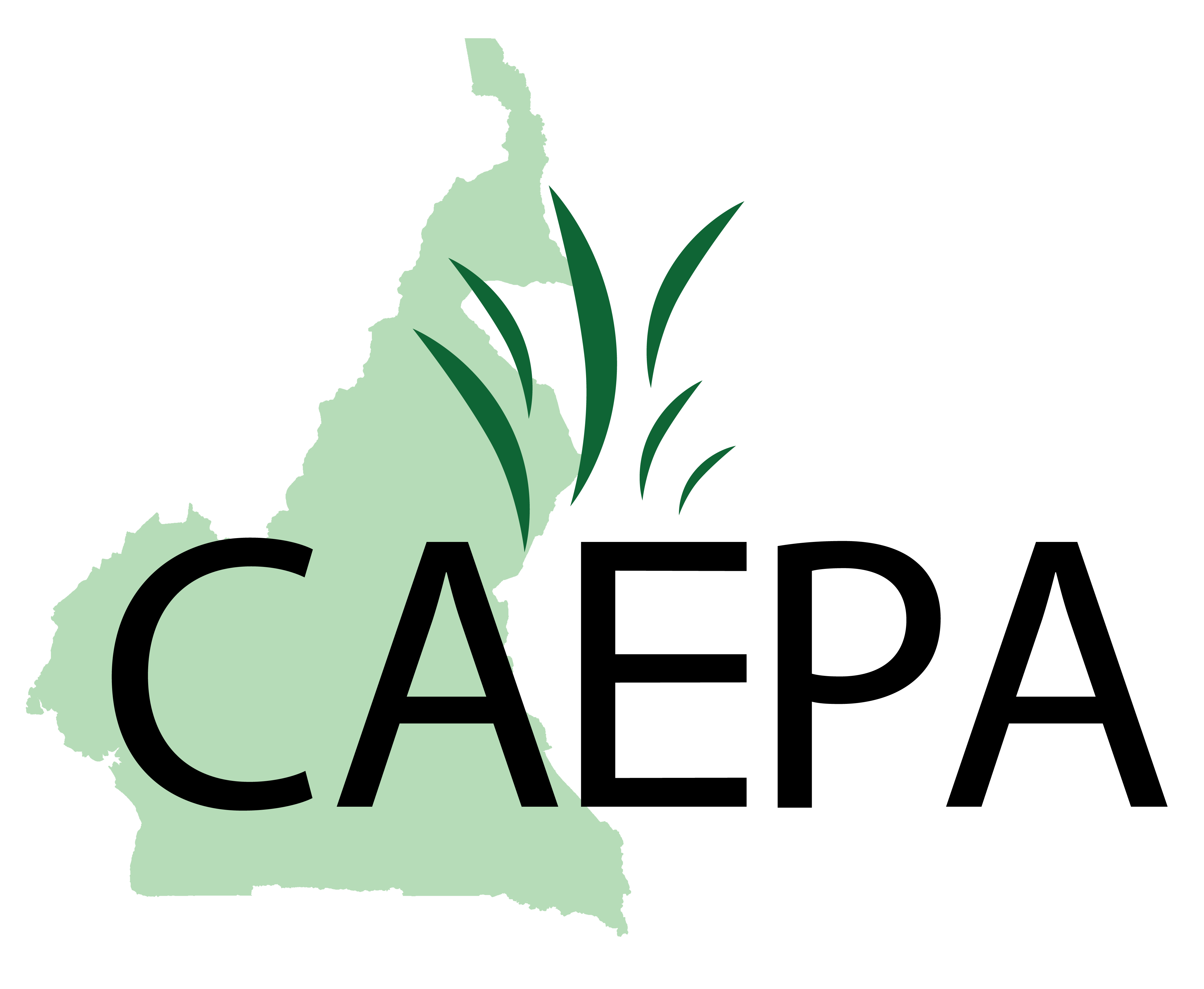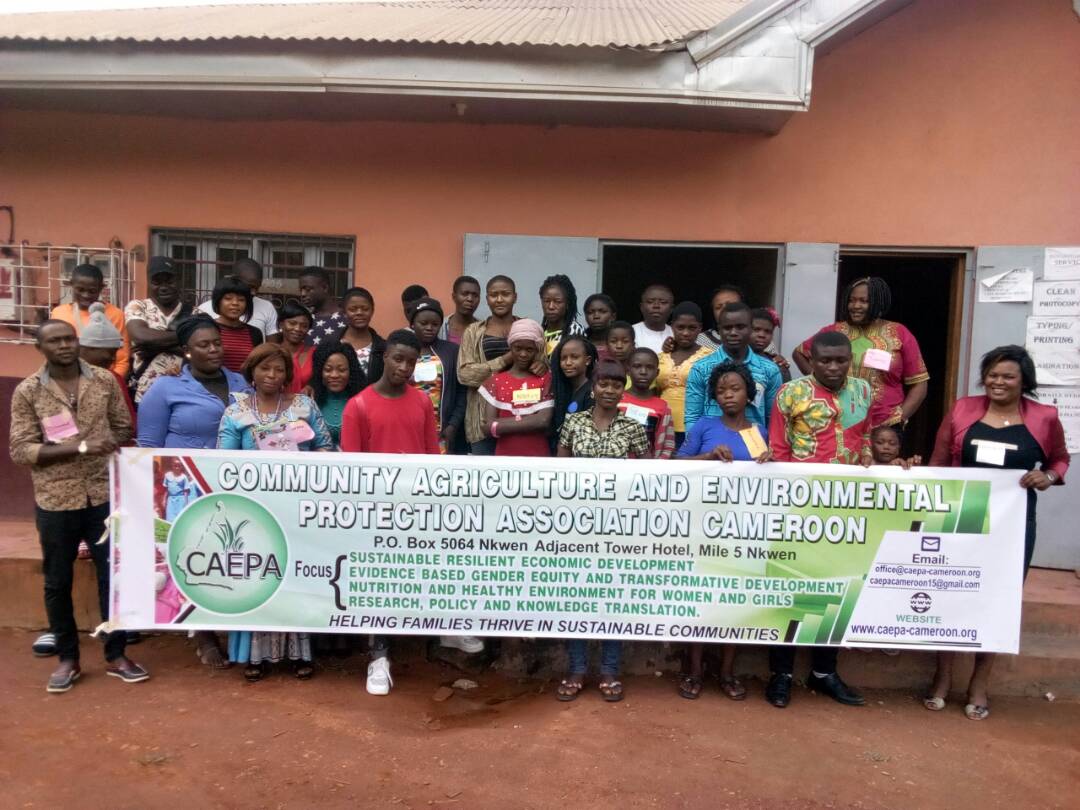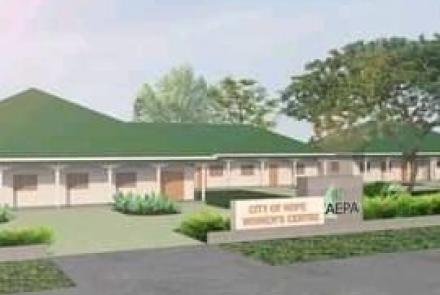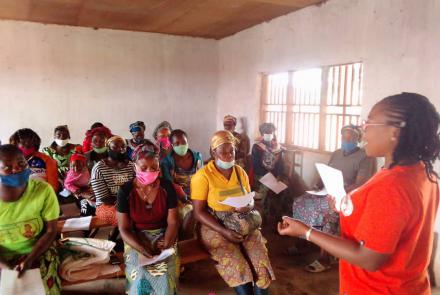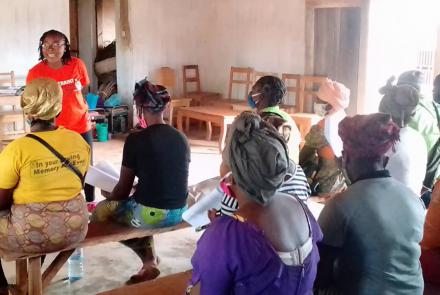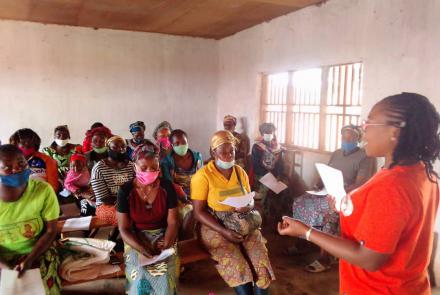National Workshop on the Participation of Minorities in the 2013 Parliamentary and Municipal Elections in Cameroon
On 28th and 29th September 2012, CAEPA and three other civil society organisations (Laimaru, MBOSCUDA and Pioneers) convened a two-day national workshop in Yaounde on the participation of minorities, specifically the Mbororo, Montagnards and Pygmies, in the 2013 parliamentary and council elections in Cameroon. With financial support from Minority Rights Group International, the workshop raised awareness for both the involvement of minorities in decisions that affect their lives and for their increased participation in the 2013 parliamentary and municipal elections.
The two-day workshop consisted of a discussion panel, plenary workshops, information-sharing and case studies/personal testimonies and included community representatives, relevant government departments, NGOs and academics as participants. Five presentations were conducted, covering the situation of minorities in Cameroon, the new electoral code, international mechanisms for protecting and promoting minority rights, the participation of Mbororo, Montagnard and Pygmy minorities in elections and minority empowerment in the political landscape in Cameroon. These presentations were given by esteemed professionals in government, NGO and civil society organisations, who discussed the obstacles to minority inclusion and the ramifications of their participation (or lack thereof) on the political realities in Cameroon. A plenary discussion panel was also held on issues facing minorities, including difficulty obtaining identification documents, discrimination by political actors and lack of support for elected minority councillors.
The program was divided into four distinct workshops that assessed intersecting issues for minorities in the electoral process. Workshop #1 focused on registration in the electoral register and the difficulties minorities face in obtaining identification documentation. Workshop #2 highlighted candidacy in civil elections and related discrimination against minorities. Workshop #3 and #4 were combined and underscored the need for ongoing support for minority political candidates.
These individual workshops uncovered severe obstacles to minority voter registration due to a deficient understanding of electoral processes, isolated geographical locations and lack of financial resources. The participants agreed that there is a need to persuade political parties to consider affirmative action and/or a quota system to persuade minority candidates to run for office. Additionally, the participants cited the need for enhanced support for minority political candidates from government, political parties, NGOs and minority communities, as well as further financial resources to support minority candidates and elected representatives and to promote lobbying and advocacy on behalf of minorities.
At the end of the workshop, three minority community representatives provided their personal success stories in the face of challenges. Sali Django of the Mbororo community explained the creation of the first national Mbororo social movement (MBOSCUDA), which runs a number of projects on human rights, female empowerment, agro-pastoral practices, literacy and education. Djanga Dabori, from the Pygmy organization ADEBAKA, discussed the progress of various programs in the Pygmy community, ranging from the establishment of identification/civil status documents to education on local governance. Isma Nguisaya, from the Montagnard community, shared her experiences in challenging patriarchal and corrupt political domination and cited ethnic and religious discrimination, entrenched patronage networks, lack of adequate resources and sexism as the key barriers to the participation of the Montagnards in decision-making structures. Various representatives of the minority groups gave additional talks to the workshop participants, emphasizing the work of organizations advocating for minority inclusion in politics.
An evaluation analysis conducted at the end of the workshop found that 80% of participants were from minority communities and all participants demonstrated enhanced knowledge on minority participation issues in Cameroonian elections. The workshop was even covered by media outlets such as CRTV, STV, BBC World Service and L’Oeil du Sahel, which successfully augmented the reach and profile of these issues. As a direct result of the workshop, eight separate resolutions were adopted, such as the creation of mobile identification centres targeting minority populations in rural areas, the mandate for minority groups to create an advocacy network and the call for state actors to assure affirmative action for the integration and promotion of minorities in public service positions.
This two-day workshop on incorporating minorities in parliamentary and municipal elections in Cameroon was a huge success in terms of attendance, participation, content and outcomes. CAEPA will work with its partner organisations to sustain the network started through this event and will use the knowledge gained to further establish joint programmes on minority rights. CAEPA is grateful to its coalition partners – Laimaru, MBOSCUDA and Pioneers – and to Minority Rights Group International for making this event possible. CAEPA also extends a special thank you to the Mbororo, Montagnard and the Pygmy minority groups for their representation and involvement in this important forum.
